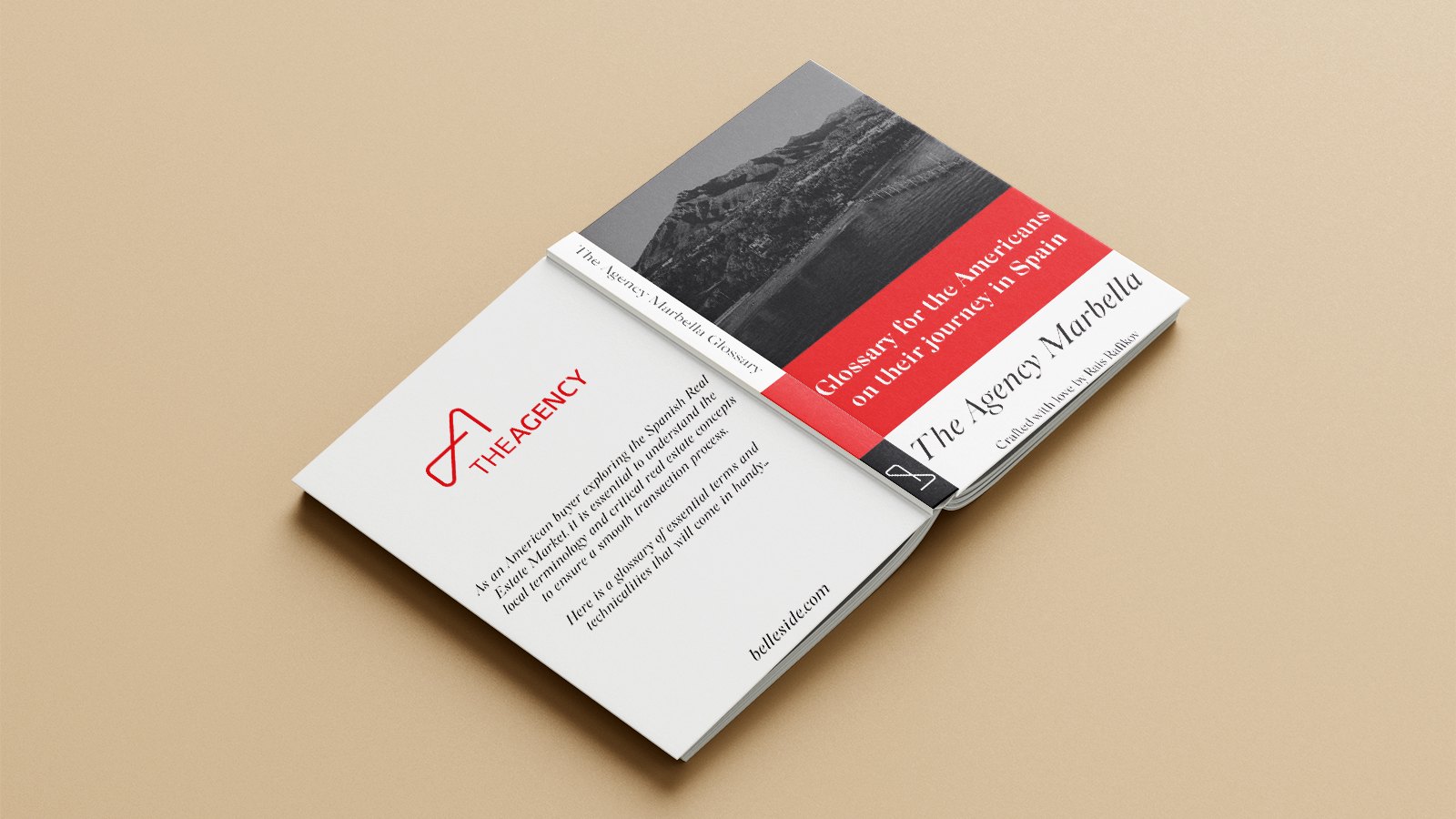
Glossary for U.S. buyers in Spain’s real estate market
The glossary of essential terms and technicalities.
Teba Siles | · 3 min. read
As an American buyer exploring the Spanish real estate market, it is essential to understand the local terminology and critical real estate concepts to ensure a smooth transaction process. Here is a glossary of essential terms and technicalities that will come in handy:
- NIE (Número de Identificación de Extranjero) is a unique tax identification number required for all financial transactions in Spain, including property purchases.
- Escritura Pública: The deed of sale, a public document formalizing the property transfer. It’s signed before a notary and is essential for registering the property in the new owner’s name.
- Notario (Notary): A public official in Spain who witnesses the signing of important documents like the “Escritura Pública” and ensures the legality of the transaction.
- Registro de la Propiedad (Land Registry): The official body records property ownership. Registration here is crucial for establishing legal ownership.
- Catastro: The land registry that provides a detailed description of properties, including location, boundaries, and size. It’s used primarily for tax purposes.
- IBI (Impuesto sobre Bienes Inmuebles): A local property tax charged annually based on the property’s cadastral value. It is comparable to property tax in the U.S.
- ITP (Impuesto de Transmisiones Patrimoniales): A transfer tax on resale properties. This is a percentage of the purchase price and varies by region.
- IVA (Impuesto sobre el Valor Añadido): A value-added tax on new properties. The standard rate for residential properties is 10%.
- AJD (Actos Jurídicos Documentados): A stamp duty tax on legal documents associated with purchasing a property, such as a deed. This tax varies by autonomous community.
- Arras (Deposit Contract): A preliminary contract with a deposit (typically 10% of the purchase price) that secures the property and sets the terms for the sale.
- Plusvalía: A municipal tax based on the increase in the value of the land from the time the seller bought the property to when it is sold. Negotiations usually determine whether the buyer or seller pays this tax.
- Tasación: An appraisal or valuation of the property, often required by banks before granting a mortgage. It determines the property’s market value.
- Hipoteca (Mortgage): A loan specifically for property purchase. Conditions and availability may differ for non-residents.
- Comunidad de Propietarios: The community of property owners in a shared building or complex. This organization manages common areas and amenities, and members pay monthly or annual fees.
- Certificado de Eficiencia Energética (CEE): An Energy Performance Certificate which rates the energy efficiency of a property. Sellers must provide this to potential buyers.
- Poder (Power of Attorney): A legal document granting someone else the authority to act on your behalf in legal or financial matters.
- Valor Catastral: The cadastral value of a property, such as the IBI, is used to calculate taxes.
Understanding these terms and their implications in the context of Spanish real estate will help American buyers navigate the market more effectively. Engaging with a local real estate professional and legal advisor is crucial to interpreting these terms in specific transaction scenarios.